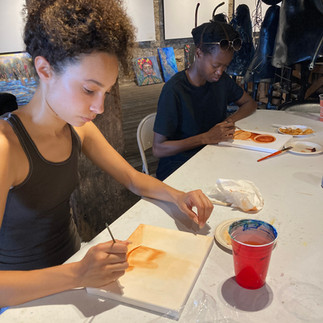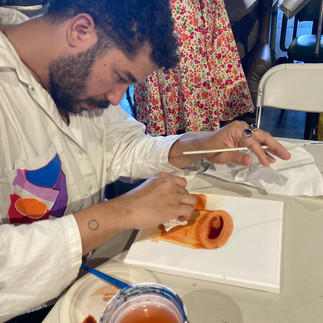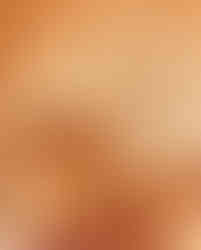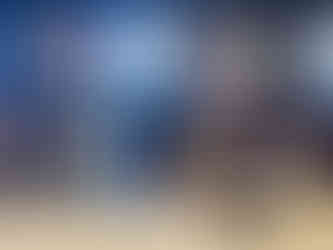ART YARD BKLYN Summer Session 2024 has completed its first week with great success! The extreme heat has been a challenge, but with all the windows open, several large fans, and lots of cold water we have sweated through some exceptional art making, learning new techniques and reveling in the inspiring AYB community of artists!
Monday, Tuesday and Wednesday we learned a new medium in painting sessions with AYB Artist Evelyn Beliveau. Thursday AYB Artists Jules Lorenzo and Liv Collins shared the work they do together as the band Joopi. All of these sessions had us challenged to learn new ideas, explore personally meaningful topics and stretching beyond our usual art practice!
Evelyn recaps their sessions: “This week, I was thrilled to kick off Summer Session with the first three days of a four-day lesson cycle focusing on one of my favorite media, water-soluble oil paint.

We welcomed a mix of longtime AYB participants and newcomers each day this week. On Day 1, our group comprised Meridith, myself, Marley, Ailey, and TJ (our 3 Summer Session interns!), Vee, Sigrid, Tangie, Simone, Leah, Arcenio, Addis, Okezie, Mich, and Eden.
This year’s Summer Session inaugurates AYB’s Year of Literacy, during which we will explore various types of literacy and uses of text in artwork.

My lesson cycle’s connection to the theme is twofold, as we intensively develop an aspect of visual literacy—close looking and transforming what is seen into a painted image—and explore the use of books as subject matter, as we create observational paintings from a still life composed of books, planters, and vases.

Combining the richness and subtlety of oil paint with the safety and ease of cleanup of water-based media, water-soluble oil paint is a versatile and accessible choice for painters at any experience level. We are using the indirect painting method (as opposed to direct, or wet-into-wet, painting), a technique with a long tradition, notably used by many Renaissance painters. The process has three stages, with the paint allowed to dry between each stage:
underpainting (using one color of paint, often an earth tone, thinned with a solvent, in which highlights come from the white canvas showing through thin paint),
grisaille (using one color of paint mixed with white to build up a monochrome painting over the structure of the underpainting, in which highlights are achieved with thicker white-tinted paint), and
color glazing (using paint mixed with a heavier medium, such as linseed oil, to gradually add color in translucent glazes).
Day 1 was dedicated to the first stage of the process: the underpainting. We used burnt sienna, a beautiful reddish-brown color, as our earth tone and worked primarily on canvases and canvas panels (except for Vee, who worked on large-scale watercolor paper). Participants practiced with a single object on a small canvas, then embarked on the underpainting of the full still life on 16” x 20” canvas panels.
Use arrows to scroll through our first small paintings in Burnt Sienna
We illustrated the three stages of the indirect painting process using unfinished works by Leonardo da Vinci, who was notorious for leaving paintings unfinished—lucky for us, since we get a glimpse into his technique! We also discussed the different effects of legible vs. illegible text in a painting, with examples from Henri Matisse, Jacob Lawrence, and William Tolliver. I encouraged participants to develop their own approach to the legibility of text based on what they wish to emphasize in the painting.

Okezie Okoro, Still life in Burnt Sienna

Addis Boyd, Still life in Burnt Sienna

Sigrid Dolan, Still life in Burnt Sienna

TJ Edgar, Still life in Burnt Sienna

Mich Goenawan, Still life in Burnt Sienna

Ailey Haynes, Still life in Burnt Sienna

Eden Moore, Still life in Burnt Sienna

Marley Haynes, Still life in Burnt Sienna

Simone Awor, Still life in Burnt Sienna

Arcenio de Jesús, Still life in Burnt Sienna

Leah Eliopulos, Still life in Burnt Sienna

Meridith McNeal, Still life in Burnt Sienna

Vee Tineo, Still life in Burnt Sienna
The underpainting stage starts with gestural sketching—pushing and pulling the dark and light to create the shapes of the objects as delineated by highlights, shadows, cast shadows, and reflected light. Each participant used one brush loaded with burnt sienna paint to add shadow and a second clean but damp brush (or a paper towel) to take away paint or push the contours of shapes back and forth. We start with a lively hand and embrace imperfections in this stage, casting off perfectionism and embracing messiness. Since oil paint is slow-drying, there’s plenty of time to rework and refine contours, and while this stage will be covered up by future layers, using free and loose brushwork here will lend the work a lively energy that shines through in the finished painting. This stage creates the structure of contour (the shapes of the objects from the painter’s vantage point, considering overlapping objects and foreshortening) and value (light and dark) that the next stages rely upon. We particularly worked on perceiving the foreshortened ellipses at the mouths of cylindrical containers and gauging which shape is lighter or darker at the edge where two shapes meet.
We finished with a critique, during which we marveled at the variety of tones that can be achieved with different applications of a single paint color. Participants received compliments about brushwork and texture, glowing effects of light, and the use of strong value contrasts."
Ed Rath adds: "It has been said, of the Japanese master carpenters, that the student must learn by intensely observing how the master executes their every move in preparing and cutting complex interlocking wood joinery. The same can be said for Evelyn's teaching method. In their demo's, they make color mixing from observation look easy. The underpinnings of this comes from their mastery of drawing and painting, gleaned from years of trial and error, resulting in their superbly disciplined eye/hand coordination."

On Day 2, a mix of returning participants and newcomers to the lesson cycle jumped in at different stages of the process. Newcomers started their underpaintings with burnt sienna paint and water, choosing a small canvas or a larger canvas panel based on their comfort level. Those with completed underpaintings moved on to the grisaille stage.
Use arrows to scroll through images
To create the grisaille, we mixed four gradations from neutral to highlight, using different ratios of burnt sienna and titanium white. Leaving the underpainting as-is for the darkest parts of the painting, we built up the midtones and highlights to create an enhanced sense of volume and light. Participants worked on finding the lightest light and darkest dark in the scene and calibrating all other values to those two extremes, and achieving sharp or blurred edges between shapes of light and dark.

Arcenio made dramatic changes to his painting as he revisited the still life and decided he wanted to approach the volumes in a different way. Marley wrestled with painters’ age-old decision of whether to declare a painting finished or keep working into it; though her underpainting was beautiful in its own right, she ultimately decided to take the leap into the grisaille stage. Leah, Ailey and Mich received compliments for the precision and glow of their grisaille work, as did Simone for her strong light-dark contrasts and composition. Vee’s uniquely large-scale work on paper prompted a conversation about scale and monumentality, with comparisons and contrasts made between works that treat the still life objects in a monumental fashion and those that feel more intimate, such as Arcenio’s painting. Newcomers to the lesson—Cayla, Chelsea, Ed, Liv, Margaret, Kerriann and her three talented children—jumped right in with underpaintings ranging from Ed’s emotionally affecting cluster of objects to Cayla’s delicate, light-filled piece.

Meridith McNeal, Still life in Burnt Sienna & White

Evelyn Beliveau, Still life in Burnt Sienna & White

Mich Goenawan, Still life in Burnt Sienna & White

Arcenio de Jesús, Still life in Burnt Sienna & White

Simone Awor, Still life in Burnt Sienna & White

Ed Rath, Still life in Burnt Sienna

TJ Edgar, Still life in Burnt Sienna & White

Leah Eliopulos, Still life in Burnt Sienna & White

Margaret Hardigg, Still life in Burnt Sienna

Ailey Haynes, Still life in Burnt Sienna & White

Kerriann Carro, Still life in Burnt Sienna

Cayla Kushner, Still life in Burnt Sienna

Liv Collins, Still life in Burnt Sienna & White

Chelsea Balkham, Still life in Burnt Sienna

Margaret Hardigg, Still life in Burnt Sienna

Avery Carro, Still life in Burnt Sienna
On Day 3, we introduced the third and final stage of the indirect painting process—color glazing—which we’ll continue in the lesson’s final day this coming Monday.
I modeled the mixing of colors based on observation, creating three different tones of green for the shadow, midtone, and highlight on one of the vases in the still life. Once the colors were prepared, I mixed a bit of paint with medium (we used linseed oil modified to be water-soluble, like the paint) and carefully applied a thin glaze over the dry grisaille layer, matching the dark green to the shadowed part of the vase and the light green to the highlights. With the value structure already worked out in the initial stages, this stage is all about observing and matching colors. With fine blending and layering, we can achieve subtle gradations of light and color that bring each object to life.


Participants were working in all different stages of the process, with some developing their grisaille, others jumping into color, and others new to the lesson starting the first stage of the process (the underpainting with just burnt sienna and water). I gave a second demo of that first stage to help newcomers get a foothold, and then we were off. As they worked, participants asked great questions about how to achieve three-dimensional effects, leading to conversations about foreshortening, reflected light, cast shadows, backgrounds and horizon lines, and light-dark relationships.


Compliments were given about texture, with comparisons to clay and wood (Adji, Ariel, Mich, Vee), smooth gradations of tones (Leah), richness of paint (Meridith, Ty, Arcenio), clarity of light or color (Leah, Sasha, Ailey, Josue), use of negative space and value contrasts (Simone), the drama of cast shadows and horizon lines (Ty, Ed), daring cropping (Josue), an almost cityscape-like treatment of the objects (Mich, Marley, Vee), the sculptural treatment of book pages (Eden, TJ), and the endowment of emotional qualities to objects (Ed).

Eden Moore, Still life in Burnt Sienna & White

Marley Haynes, Still life in Burnt Sienna, White & Color

Ailey Haynes, Still life in Burnt Sienna, White & Color

Josue Ramirez-romero, Still life in Burnt Sienna

TJ Edgar, Still life in Burnt Sienna, White and Color

Adji Kebe, Still life in Burnt Sienna

Mich Goenawan, Still life in Burnt Sienna, White & Color

Sasha Jackson, Still life in Burnt Sienna

Ty Fletcher, Still life in Burnt Sienna

Arcenio de Jesús, Still life in Burnt Sienna, White & Color

Simone Awor, Still life in Burnt Sienna, White & Color

Evelyn Beliveau, Still life in Burnt Sienna

Ed Rath, Still life in Burnt Sienna & White

Evelyn Beliveau, Still life in Burnt Sienna, White & Color

Meridith McNeal, Still life in Burnt Sienna, White & Color

Ariel Abdullah, Still life in Burnt Sienna
I am truly blown away by the focus, commitment, and openness of the participants in my three lessons this week. The paintings are varied, filled with nuanced observation and a sense of enjoyment and curiosity for the potential of the paint. Teaching this lesson cycle has been a dream, and I'm excited to return on Monday to finish out the cycle."
Evelyn finishes up with: "I would like to extend a huge thank you to Meridith, Dennis, the AYB Board, the AYB Awareness Team, everyone who has supported Summer Session via the GoFundMe or the supplies registry, and last but not least our fantastic interns this week: Ailey, Marley, and TJ! These three kept everything running smoothly, from setting up supplies, snacks, and signage to checking in participants to cleaning up the space. It is truly a team effort, and our community has shown up to make Summer Session happen.”
This is a great place to second Evelyn’s compliments to those who have supported AYB Summer Session 2024! by donating through our GoFundMe campaign, purchasing supplies on our Amazon Supply list, and donating through PayPal, Venmo and check! All of these links are active and if you are so inclined, we truly appreciate your help in reaching our goal to fully fund summer session!!
AYB Summer Session 2024 is made possible with the support of: Golnar Adili, Rose Albin, Kevin Anderson, Elinore Antell, Marilyn J. August, Hisla Bates MD, Connie Beliveau, Evelyn Beliveau, Flavia Berindoague, Olivier Berrgruen, Akira Billie, Michael Bliss, Taylor Branch, Cecile Chong, Skylar Clemens, Liv Collins, Joan Davidson, Jennifer Dodson, Sigrid Dolan, Leah Eliopulos, Jean Gardner, GoFundMe Team, Patrick Grenier, Candy Heiland, Brece Honeycutt, Jane Huntington, Michelle Kim, Alexis Kwan, Louisa Lam, Pat Larash, Mary P. Lopez, Jennifer McGregor, Claude McNeal, Meridith McNeal, Peter McNeal, Elizabeth Morales, Tangie Murray, Iviva Olenick, Jeff Owen, Rachel Palmer, Lisa Peet, Scott Pfaffman, Karla Prickett, Ed Rath, Rachel Rath, Diana Rickard, Marie Roberts, Rob Skaff, Sue Smith, Judy Tilley, Fatima Traore, Grace Webb, Quentin Williamston, and Christine Willis.
Yesterday in a session entitled Sculpting the Subconscious: Envisioning Lyrics & Live Music we had a real treat when AYB Artists Jules Lorenzo and Liv Collins who perform together as Joopi, started their session with a live acoustic set. I have seen Joopi perform live more than once and this was a very special show. I just loved hearing about the back story to the songs, having the lyrics typed out to read and re-read as I listened and being so close up to the artists.
Jules explains: “In the words of Adrianne Lenker, “Songs emerge from an ever-mysterious source within us- our subconscious, our inner child, magic, the universe. Our primary task as songwriters is to ensure this source remains unblocked and unhindered.”
Songwriting, similar to all mediums of art, pulls inspiration from everything around us. Whether it’s a movie, a poem, heartbreak, or a memory from the past, we each have an abundant palette of emotions and personal experiences to draw from and incorporate into our work. Structuring these grand feelings and ideologies into lyrics is where the real magic happens.
Some of our favorite artists have expressed their song writing processes really well. We shared several quotes:
“I normally write the melody first. Before I play the chords, I can hear them. It's like imagining a picture before putting it on paper. I'll usually have the basic idea of a line in a song, like "I'll be loving you always." For that song, I knew the feeling I wanted to write about. I just didn't have all the lyrics.”- Stevie Wonder
“She quoted Lord Of The Rings multiple times, shared Mary Oliver poems, showed us her paintbrushes, and talked about her dog. She demonstrated how she thinks about humor in language by playing us a silly unreleased song (“Cactus, Practice,” complete with whistling). She sketched small frog drawings, elaborated on how much she enjoys food puns, and used phrases like “sculpting subconscious abstract flow into an intentional form with contours and cadence to it.” - Matthew Chylak (Stereogum) on Adrianne Lenker
“I really, really enjoy fitting words together — but I only enjoy it when it’s easy, when it sort of rolls along by itself. I never erase anything [and] I hardly ever write anything down… The song will be finished before I write it down… I won’t write a song unless it serves me in some way, unless I feel I have to write the song to make myself feel better. If you’re not overflowing with something, there’s nothing to give.” - Fiona Apple
We went over lyrics from our band Joopi, as well as a few other artists. After doing that we began a free writing session, similar to a stream of consciousness, where participating artists took notes of any words, feelings, or memories that come up/stick out to them upon listening to the provided material. Liv shared drawings she made while we were recording our upcoming album. We then used those notes to create a visual reimagining of the lyrics with our remaining class time.”
Liv Collins, Something More, Suffocate, Lamb, Buggy Bye Bye, 2024, digital drawings

Liv adds: “Taylor’s response today almost made me cry. She really made me feel validated with our work and our words. Plus I’m so happy that it resonated with so many people and created such a safe outlet for vulnerability and expression!”


















During critique someone commented that from the moment Jules and Liv got up on the stage to tune their instruments we were en rapt! Everything from the hot pink cables to their wonderful fashion sense is engaging!

Other Art News
You are invited to the opening of The Art of Coney Island 3 tomorrow Saturday, July 13 from 1-6pm at BWAC gallery at 481 Van Brunt Street, Red Hook, Brooklyn!
AYB Artists Dennis Buonagura, Candy Heiland, Maraya Lopez, Meridith McNeal, and Marie Roberts have work included in the exhibition.

Here we are at the end of a remarkable week. There have been some really challenging moments, heat wave temperatures with no reprieve & no air conditioning, difficult things to deal with, but ... Ajani and I were asked by a friend this afternoon what it means to us be "a real artist", and it was both to easy and to hard to describe -- because we ARE that. We know that. It is how we think. What we make. It is what we do!

One more time, thank you to everyone who has contributed financially to ART YARD BKLYN Summer Session 2024. We don't have much in the way of financial resources, but I tell you what, we really have it all going on when it comes to being artists.
Love and gratitude,
























































































コメント